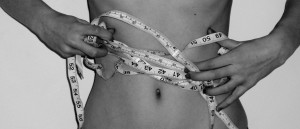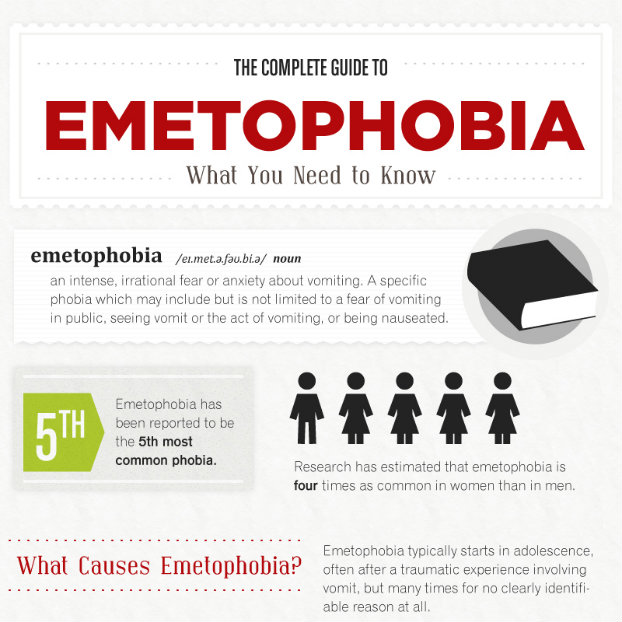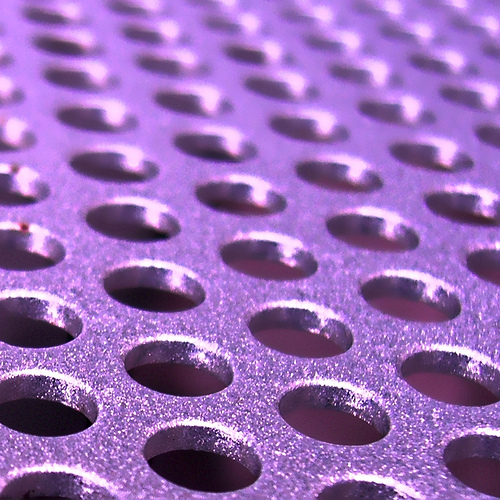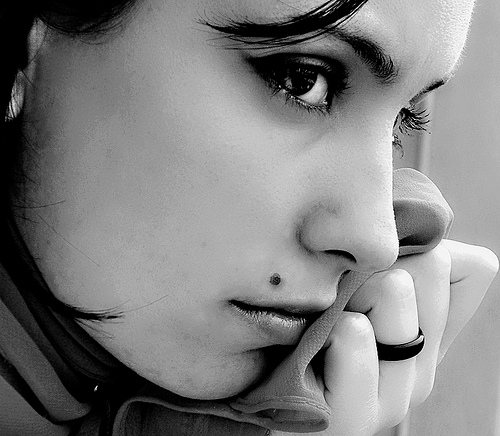 Emetophobia, or the fear of vomit and vomiting, may seem like a relatively mild phobia to people who do not have it. Most people have a natural, biological disgust for illness, so everyone wants to avoid being around it to some extent. For emetophobics, though, the fear can become all-consuming and disruptive to their daily life. It can affect their job, their family life, and their ability to enjoy food and social events. Unfortunately, emetophobics often try to deal with their conditon in ways that are ineffective and fail to cure the illness.
Emetophobia, or the fear of vomit and vomiting, may seem like a relatively mild phobia to people who do not have it. Most people have a natural, biological disgust for illness, so everyone wants to avoid being around it to some extent. For emetophobics, though, the fear can become all-consuming and disruptive to their daily life. It can affect their job, their family life, and their ability to enjoy food and social events. Unfortunately, emetophobics often try to deal with their conditon in ways that are ineffective and fail to cure the illness.
Unhealthy Dietary Changes
One of the ways some people with Emetophobia deal with the condition is by changing their diet. Fearful of being nauseated, some emetophobics will restrict their food intake. Unfortunately, this change in their eating habits is not usually healthy. Emetophobics don’t aim to change their diet so they can eat better or improve their nutrition. Rather than adding vegetables and fruits or cutting back on processed foods, emetophobics usually try to restrict the variety of the foods they eat. Some will only eat certain “safe” foods that they think are unlikely to lead to vomiting. This can be harmful if the so-called safe foods are not nutritious or are eaten in excess. It can also make it difficult for emetophobics to eat out or in public places.
Eating Disorders and Emetophobia
In extreme cases, the refusal of emetophobics to eat more food for fear of becoming ill can lead to an eating disorder. Anorexia nervosa is defined by PubMed Health as “an eating disorder that makes people lose more weight than is considered healthy.”
It can be difficult to diagnose the exact cause of an eating disorder such as anorexia, but some studies have shown a link between Emetophobia and food refusal or avoidance.
Combined Emetophobia and anorexia can be especially dangerous because both disorders are difficult to treat. Anorexia itself has a high fatality rate because of the reluctance of people who have it to go through with treatment.
Stopping Emetophobia from Taking Over
If you have Emetophobia, you shouldn’t hesitate to speak to a mental health professional such as a licensed psychologist or a psychiatrist. Being diagnosed by a specialist is important, as is seeking help to deal with the disorder.
Learning to deal with anxiety first is a good place to start. Relaxation techniques such as deep, even breathing and yoga may help with anxiety. For treating Emetophobia specifically, it is best to seek professional help. Joining an Emetophobia support group can also reduce some of the feelings of alienation emetophobics may feel.





